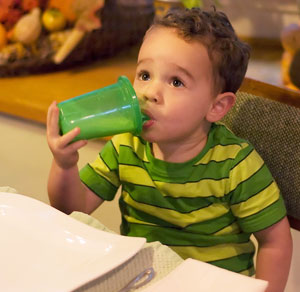Zoology major turns down Phillies to focus on degree
It’s not all about the money. Although he’s been drafted – twice! – by major league baseball, Jason Monda says he will pitch for the Cougars during his senior year at Washington State.
It’s not all about the money. Although he’s been drafted – twice! – by major league baseball, Jason Monda says he will pitch for the Cougars during his senior year at Washington State.

From Washington State Magazine:
“No biological legacy.”
The phrase John Bishop uses to describe the effect of Mount St. Helens’s eruption on the main blast zone, the pumice plain, holds an understated charm. By now, everyone has heard the story of Mount St. Helens-how it blew on a Sunday morning in May 1980, after rumbling for weeks, an earthquake triggering an enormous landslide, hot gas and rock debris blasting across the landscape at 1,100 kilometers an hour, devastating 60 square kilometers and killing 60 people. But it is impossible to accept the immensity of the mountain and the eruption’s legacy, unless you are able to stand beneath the enormous crater on the pumice plain-and hear Bishop, an ecologist at Washington State University at Vancouver, talk about lupines.
No biological legacy. Trees, birds, elk, bacteria, spring flowers, humans-all simply vaporized. A whole region was completely sterilized.
 “The problem is no longer food scarcity, but too much food,” said Halley Morrison, a recent WSU biology graduate and author of an interdisciplinary Honors College senior thesis that was published in the journal Appetite.
“The problem is no longer food scarcity, but too much food,” said Halley Morrison, a recent WSU biology graduate and author of an interdisciplinary Honors College senior thesis that was published in the journal Appetite.
Morrison, together with Tom Power, professor and chair of the human development department, analyzed more than 200 mother-child surveys and found that a mother’s eating habits and behavior at the dinner table can influence her preschooler’s obesity risk.
WSU researchers have lengthened their list of environmental toxicants that can negatively affect as many as three generations of an exposed animal’s offspring.
 Writing in the online journal PLOS ONE, scientists led by WSU molecular biologist Michael Skinner document reproductive disease and obesity in the descendants of rats exposed to various plastic compounds (including BPA). In a separate article in the journal Reproductive Toxicology, they report the first observation of cross-generation disease from a widely used hydrocarbon jet fuel mixture the military refers to as JP8.
Writing in the online journal PLOS ONE, scientists led by WSU molecular biologist Michael Skinner document reproductive disease and obesity in the descendants of rats exposed to various plastic compounds (including BPA). In a separate article in the journal Reproductive Toxicology, they report the first observation of cross-generation disease from a widely used hydrocarbon jet fuel mixture the military refers to as JP8.
Both studies are the first of their kind to see obesity stemming from the process of “epigenetic transgenerational inheritance.

By Miesha Swensen, College of Arts and Sciences communication intern
Graduate student Mara Riley was selected for a rare honor this fall, thanks to her unique research comparing the effects of breastfeeding and infant formula on infant health.
“Out of more than 200 abstracts, she was the only student selected to present her data in an oral presentation rather than a poster,” said Shelley McGuire, Washington State University nutrition professor/lactation physiologist and Riley’s advisor. “This is something Mara should be very proud of.”
McGuire is the principal investigator on the Bill and Melinda Gates Foundation grant that funded Riley’s research.
Riley gave her presentation at the biennial International Society for Research in Human Milk and Lactation (ISRHML) conference in Trieste, Italy, in September.
“To be able to showcase data from my research to that group of professionals really made me feel like the research had come to life,” she said.
Riley’s research focuses on infant health and gastrointestinal microbiota by looking at the two feeding modes, breastfed and formula-fed, and changes in infant health over time. She collected saliva, milk, and feces from 23 woman-and-infant pairs in the Pullman/Moscow area and analyzed the bacteria present in each of the samples.
Riley was awarded the Young Investigator Travel Award from ISRHML, which made it possible for her to attend the conference. The award recognizes junior investigators who have shown outstanding scientific research in the study of milk and lactation. She also received funding from the Carl H. Elling Endowment in the WSU School of Biological Sciences to support her research and travel expenses.
Riley and McGuire collaborate with University of Idaho lactation physiologist Mark McGuire and his lab.